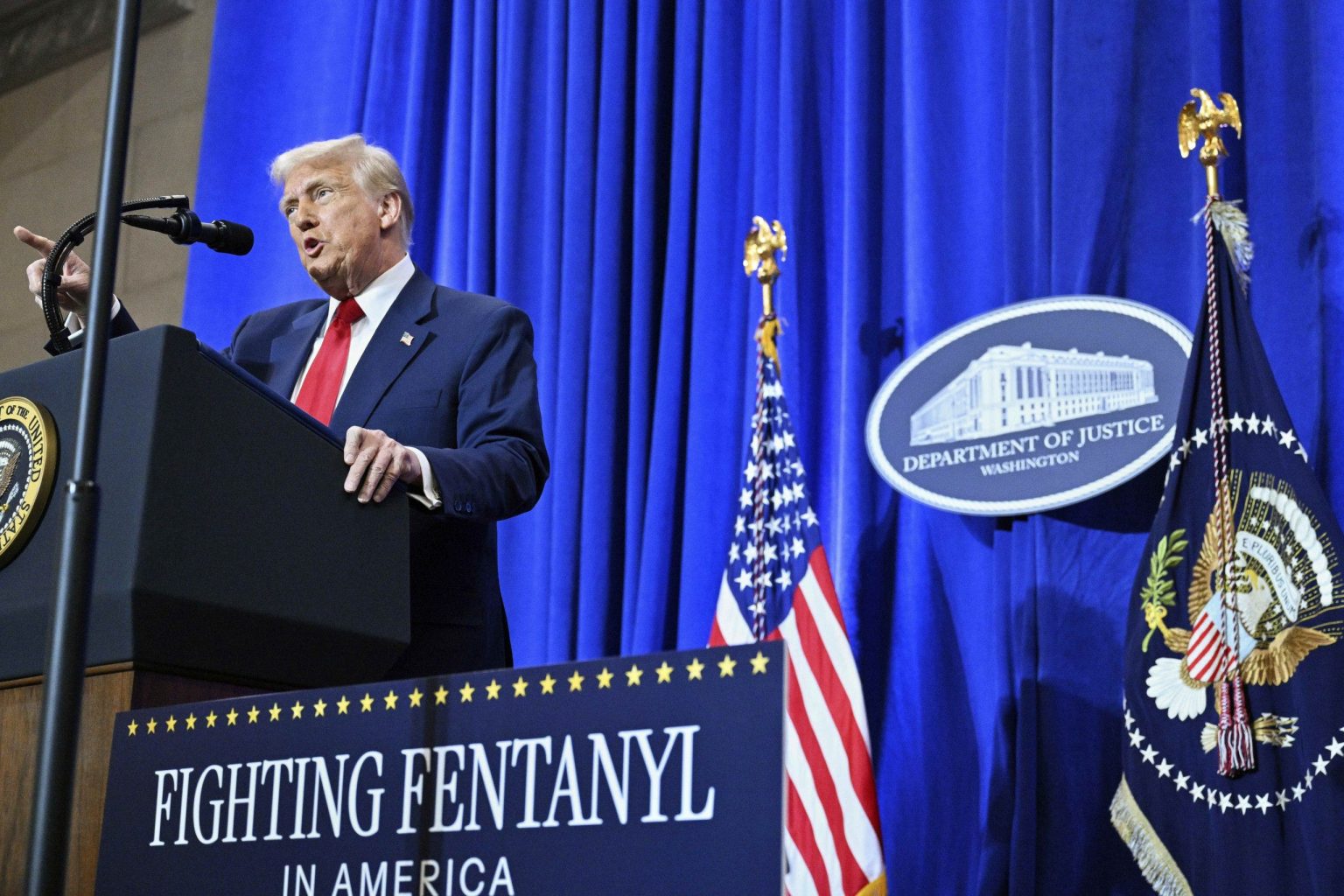Former President Donald Trump vehemently criticized the Department of Justice during a recent address, claiming it has been transformed into a tool for political corruption under President Joe Biden‘s administration. Trump described the agency as the “Department of Injustice,” accusing it of aiming to turn the United States into a “corrupt communist” nation. The speech outlined Trump’s ongoing grievances regarding legal matters and alleged assaults on American freedoms, firing up his base as he navigates a series of legal challenges.
| Article Subheadings |
|---|
| 1) Trump’s Address and Claims Against DOJ |
| 2) Ongoing Legal Battles Facing Trump |
| 3) Allegations of Media Conspiracy |
| 4) The Perkins Coie Controversy |
| 5) Public and Legal Reactions |
Trump’s Address and Claims Against DOJ
On March 14, 2025, Donald Trump addressed supporters at the Department of Justice in Washington, D.C., asserting that the agency had become a “Department of Injustice” under the Biden administration. Trump stated, “Our predecessors turned this Department of Justice into the Department of Injustice,” signaling his contentious relationship with current officials. He further claimed that those in power attempted to morph America into a “corrupt communist and third world country,” adding, “But in the end, the thugs failed and the truth won.” This declaration seemed aimed at bolstering support among his base, as Trump emphasized values of freedom and justice, portraying himself as a champion against perceived corruption.
Ongoing Legal Battles Facing Trump
As of 2025, Donald Trump is embroiled in several legal challenges that have surfaced since his presidency. Following his tenure, former Attorney General Merrick Garland appointed special counsel Jack Smith to investigate Trump’s actions related to the 2020 election and the handling of classified materials at his residence in Mar-a-Lago. During his speech, Trump characterized these investigations as an unjust targeting of his political ambitions, claiming they represent a broader effort to prevent his return to the White House. He described them as a betrayal of American values, stating that “there could be no more heinous betrayal of American values than to use the law to terrorize the innocent.” Such remarks underscore the complicated intersection of law, politics, and public opinion concerning Trump’s legacy.
Allegations of Media Conspiracy
In his address, Trump did not shy away from attacking the media, alleging that it collaborates with the judicial branch to manipulate public discourse. “It has to be illegal,” he stated, suggesting that coordinated efforts between media outlets and the judicial system undermine judicial impartiality. His claims reflect a long-standing narrative he has employed since his 2016 campaign, one that positions the media as a biased adversary rather than a critical watchdog. By framing the situation in this manner, Trump aims to galvanize his supporters against what he perceives as an entrenched system that aims to silence dissent from his political platform.
The Perkins Coie Controversy
Complicating Trump’s legal landscape is the controversy surrounding the law firm Perkins Coie. This firm had previously been involved in opposition research against Trump, including the infamous “Steele dossier,” which contained unverified allegations. Trump accused the firm of being complicit in a campaign to undermine his candidacy, pointing to their association with political opposition as an example of the alleged conspiracies against him. In a recent executive order, he stripped the firm of security clearances and federal access, which prompted a legal response from Perkins Coie, seeking a restraining order to regain access to federal resources. This back-and-forth illustrates the increasingly aggressive legal measures being employed in the current political climate.
Public and Legal Reactions
Responses to Trump’s pronouncements have been mixed. Many within the Republican Party continue to support him, seeing him as a defender of traditional values under siege by a liberal establishment. Meanwhile, Democrats and legal analysts have characterized his remarks as an attempt to delegitimize crucial institutions of democracy, including the judicial and media systems. The rhetoric surrounding these discussions is charged and often polarizing, indicative of the broader divisions within American society. As Trump navigates these challenges, his approach resonates strongly with some segments of the electorate while alienating others.
| No. | Key Points |
|---|---|
| 1 | Trump refers to the Department of Justice as the “Department of Injustice” during his speech. |
| 2 | Ongoing legal investigations against Trump stem from the 2020 election and classified materials handling. |
| 3 | Trump alleges collusion between the media and the judicial branch to undermine his reputation. |
| 4 | Perkins Coie faces controversy over its past opposition research and Trump’s retaliation against the firm. |
| 5 | Reactions to Trump’s claims are deeply divided along partisan lines. |
Summary
The recent speech by former President Donald Trump at the Department of Justice encapsulates the ongoing tensions within American politics, particularly regarding the intersection of legal challenges and political ambitions. As Trump publicly condemns the perceived corruption of various institutions, he simultaneously navigates serious allegations against him. This rhetoric not only energizes his core supporters but also deepens the existing divides among the electorate, highlighting the complex landscape of contemporary American democracy.
Frequently Asked Questions
Question: What are the specific allegations against Donald Trump?
Trump is currently facing multiple legal challenges, including investigations into his actions surrounding the 2020 election and the handling of classified materials at his Mar-a-Lago residence.
Question: How does Trump view the media’s role in these controversies?
Trump has accused the media of colluding with the judicial branch to undermine him, asserting that their coordination constitutes an illegal influence on the judicial process.
Question: What is the significance of the Perkins Coie law firm in this context?
Perkins Coie is notable for its involvement in opposition research against Trump in 2016, including the compilation of the “Steele dossier,” which is central to his allegations of political conspiracy.


